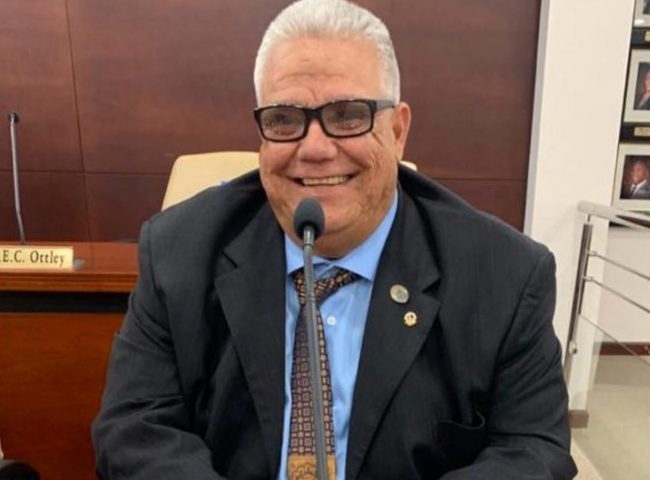PHILIPSBURG, Sint Maarten — July 29 th 2021 – Member of Parliament Claudius Buncamper is questioning who the suggested property tax will apply to. This quarry comes at the heels of the presentation in Parliament by CFT which stated that Property Tax should be implemented in St. Maarten. “I was somewhat surprised at the hard stances several MP’s have already taken regarding the land tax or property tax issue. While the CFT stated clearly that the recommendation of the IMF to impose some sort of land or property tax is understandable, because of its consistency on the books, I strongly believe we need to put that in perspective and explain what is expected from such a tax”.
Buncamper suggests that it is necessary to understand whether it is the intention for the proposed property tax burden to be carried by the residence of St. Maarten who are already carrying all the tax burden on St. Maarten, or whether this time around, this tax burden will indeed be spread and the property or real estate tax will be used to tax those who are not contributing to the Government’s Treasury.
The current situation is as such that there are no restrictions for non-residents to own or purchase property, but this group does enjoy the benefits that the Country provides. The consequences of this includes the high cost of property which disadvantages the residents or locals, but that is a discussion for another time. Member of Parliament Buncamper would like the Government to explore the possibility of imposing a real estate tax on non-residents so that they too contribute to the treasury.
While this may seem discriminatory, it is positive for the country and the residents and finally allows the country to tap into a revenue source currently not being enjoyed. Buncamper states that such differentiation is applied in other countries, so there should be no issue. “We don’t collect revenue from AIR BNB, and this for me is rather unclear, but we can create our own revenue source for this sector, as the properties cannot be hidden in an offshore account”.
This may just be the solution says MP Buncamper, to still collect a tax from foreign owned properties being rented and generating rental income on St. Maarten, while thus far none of that income remains on the island, or at least does not reaching the governments coffers and as such does not help to pay the bills of the country. The MP states that in other countries all timeshare owners (in the USA for sure) pay property tax, so the concept is familiar and should not be a deterrent for wealthy foreign investors who want to own a little piece of paradise.
According to the USP Member of Parliament Claudius Buncamper, he clearly stated in the July 7th meeting with the CFT, that he could not support land or property tax in its present form. “We must bear in mind that having absolutely no property tax, land tax or restrictions of any kind on foreign investors, causes the market price for property to be driven by the buying power of the wealthy foreign investors. The result is, that locals are unable to afford land in St. Maarten; are unable able to qualify for a mortgage to buy property (yes for a car of course) and as such have a very difficult time building wealth; own an asset for which the value can actually increase or which can be used as collateral to invest in other assets; and this is what contributes to the growing disparity in wealth, concludes Buncamper.
As a landowner this law will not personally benefit me as it can drive the land prices down.
My decision is based on the job I’m presently fulfilling; being a parliamentarian and placing
country above self.
While many of us might dislike the authors/proposers of the tax proposals please remember that the money generated is for the country and not the authors of the law. I truly hope to see a land tax proposal in the tax reform proposal the Minister of Finance is coming with to parliament prior to the budget 2022 debate so we can ensure we are all looking and moving in the right direction. Monies raised from such a taxation can easily remove the pensioners payment of taxes and social premiums starting January 2022.






























